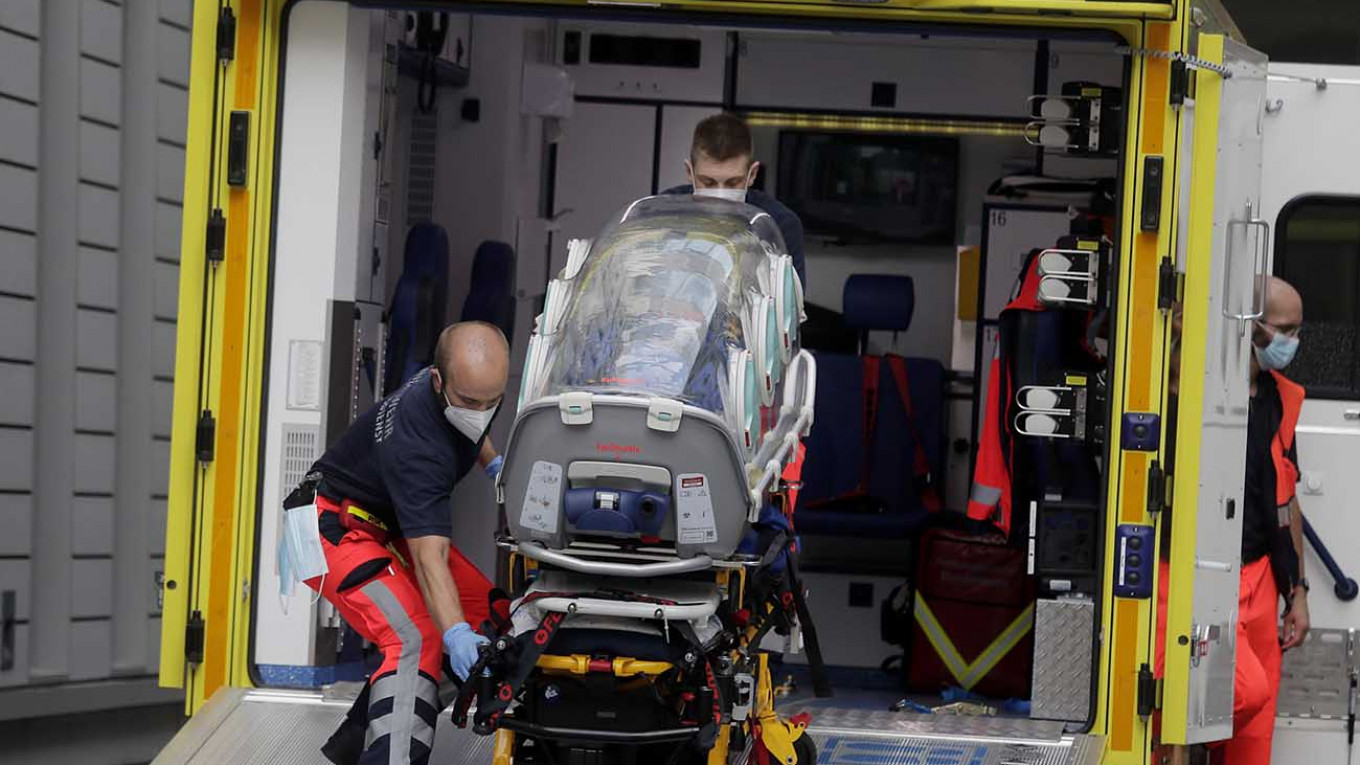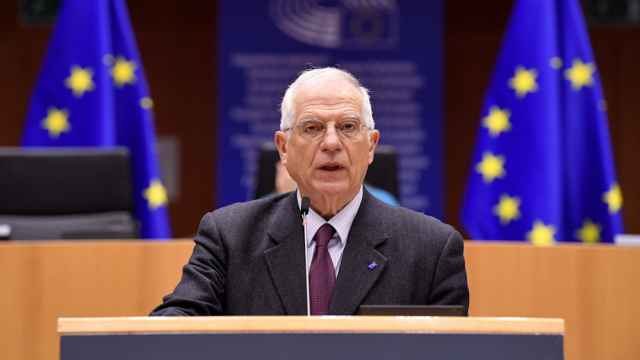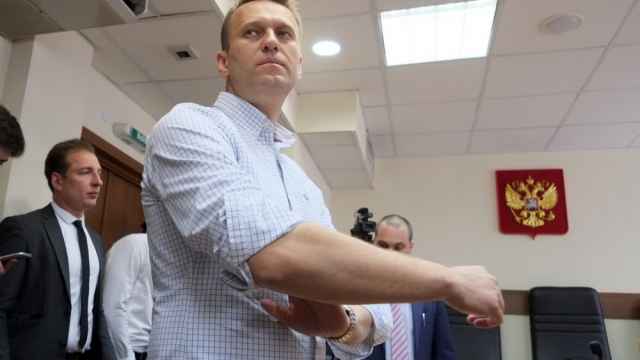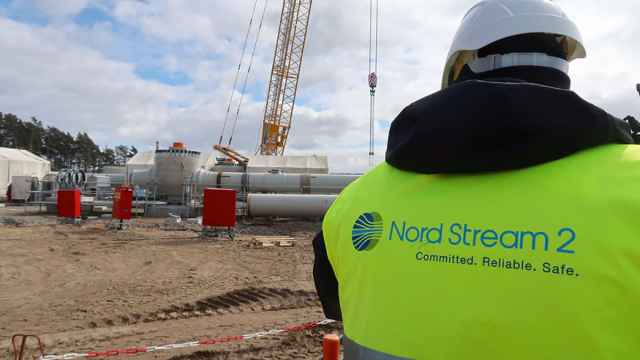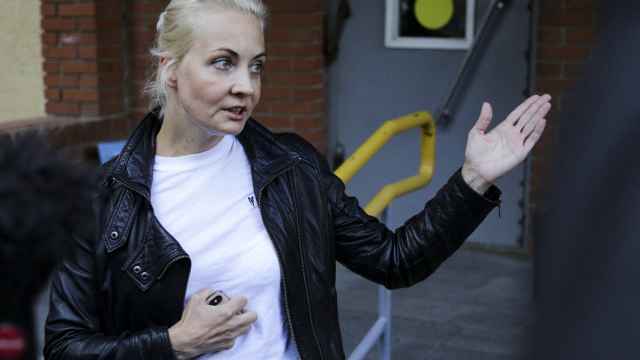Updated to add Charité hospital statement.
The German government believes that Kremlin critic Alexei Navalny was likely poisoned, Chancellor Angela Merkel’s spokesman said Monday.
Steffen Seibert’s comments during a press briefing align with claims from Navalny’s aides, who say he was poisoned with a cup of tea at an airport cafe. Navalny, 44, has been in a coma since Thursday, when the de facto Russian opposition leader fell suddenly ill on a flight to Moscow, forcing an emergency landing in Siberia.
“We’re dealing with a patient who fairly likely was poisoned,” Seibert told reporters.
The Siberian doctors who initially treated Navalny said tests showed no traces of poison, an assertion they reiterated at a press briefing Monday.
Navalny was airlifted from the Siberian city of Omsk to the Charité hospital in Berlin on Saturday following a standoff over his evacuation between his aides and Russian doctors. Doctors eventually allowed Navalny’s transfer on a German air ambulance after family and staff demanded authorization to take him out of Russia.
On Monday, the Kremlin said that President Vladimir Putin was not involved in talks on Navalny’s evacuation. Navalny is a fierce critic of Putin’s rule and has published several video investigations alleging corruption and malfeasance in Putin’s circle.
Later on Monday, the Charité hospital issued a statement saying that its doctors' tests indicate that Navalny was likely poisoned with a substance from the "cholinesterase inhibitor" group. The hospital added that he remains in a coma but that there is "no acute danger to his life."
Cholinesterase inhibitors can be found in drugs used to treat Alzheimer's and other conditions, but are also present in pesticides and nerve agents. The hospital said Navalny is being treated with atropine, the same substance used to treat former double agent Sergei Skripal and his daughter Yulia after they were attacked with the toxic nerve agent Novichok in Britain in 2018.
"The outcome of the disease remains uncertain and long-term effects, especially in the area of the nervous system, cannot be ruled out at this point in time," the Charité hospital said.
Seibert called for a “full and transparent” investigation into the circumstances of Navalny’s hospitalization, according to the state-run TASS news agency.
Following news of Navalny's suspected poisoning last week, both Merkel and French President Emmanuel Macron offered him medical treatment in their countries.
A Message from The Moscow Times:
Dear readers,
We are facing unprecedented challenges. Russia's Prosecutor General's Office has designated The Moscow Times as an "undesirable" organization, criminalizing our work and putting our staff at risk of prosecution. This follows our earlier unjust labeling as a "foreign agent."
These actions are direct attempts to silence independent journalism in Russia. The authorities claim our work "discredits the decisions of the Russian leadership." We see things differently: we strive to provide accurate, unbiased reporting on Russia.
We, the journalists of The Moscow Times, refuse to be silenced. But to continue our work, we need your help.
Your support, no matter how small, makes a world of difference. If you can, please support us monthly starting from just $2. It's quick to set up, and every contribution makes a significant impact.
By supporting The Moscow Times, you're defending open, independent journalism in the face of repression. Thank you for standing with us.
Remind me later.


